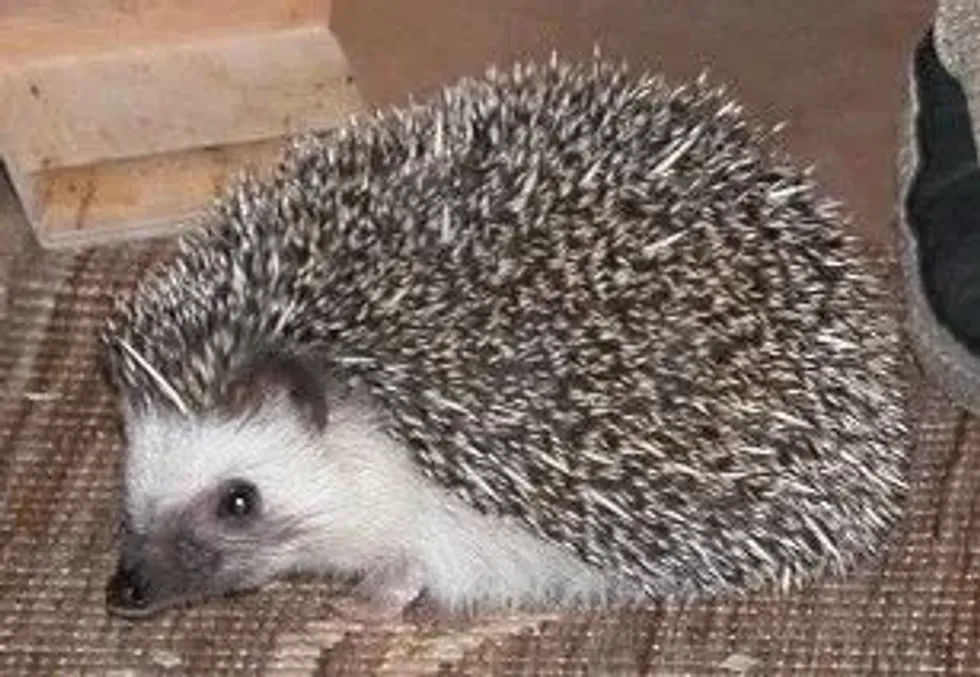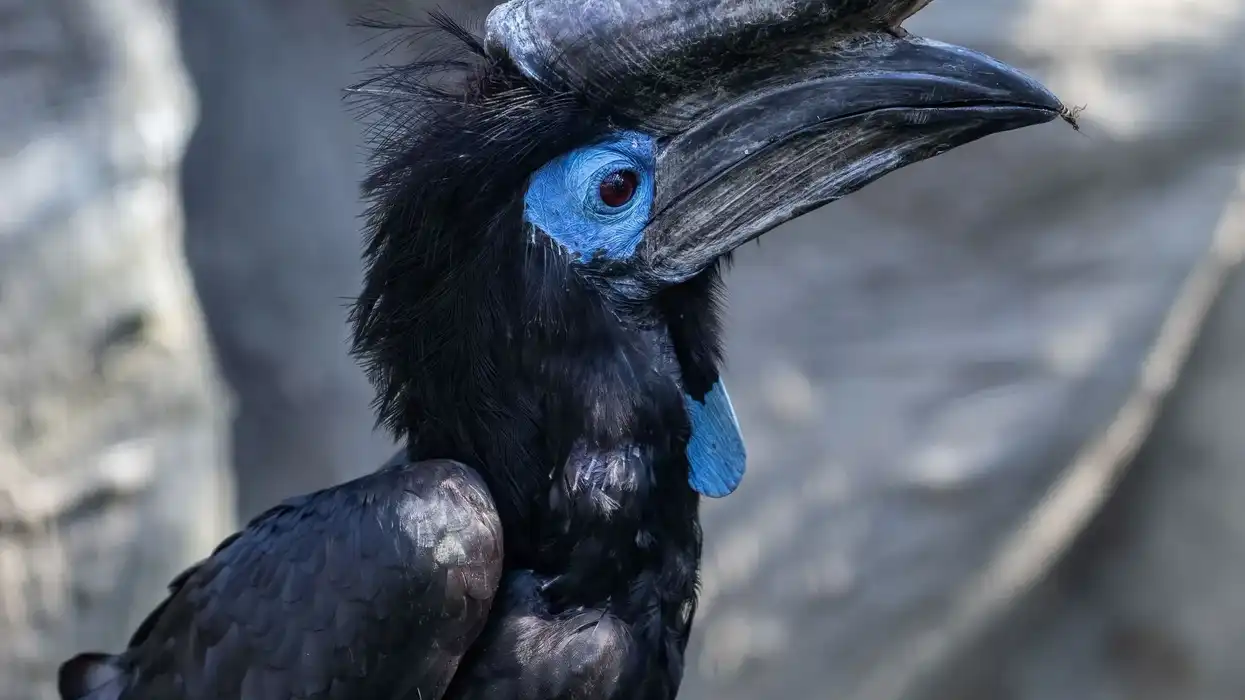If you are looking to read about unique animals in Africa, then African pygmy hedgehogs are just what you are looking for. This species of hedgehogs are commonly found in the central and eastern countries of Africa.
Along with being abundant in the wild, they have achieved immense popularity as a pet worldwide. However, if you are taking care of these hedgehogs, you must ensure that they have spaces to travel around in captivity.
This animal is highly energetic and can run long distances. Being solitary animals, they are mostly active during the night.
The scientific name of the African pygmy hedgehogs is Atelerix albiventris and they are mammals in nature. These animals are widely recognized due to their sharp quills or spines on their backs.
So, read on for more information regarding this unique animal native to the continent of Africa. For more information on other species of animals, take a look at hedgehogs and chipmunks.
African pygmy hedgehog Interesting Facts
What type of animal is an African pygmy hedgehog?
African pygmy hedgehog (Atelerix albiventris) is a type of four-toed hedgehog that is endemic to the countries belonging to the east and central part of Africa. Four-toed hedgehog is also the common name for these self-anointing animals.
What class of animal does an African Pygmy Hedgehog belong to?
African pygmy hedgehogs belong to animals that are mammals in nature and to the class Mammalia..
How many African pygmy hedgehogs are there in the world?
In the wild, there are no data on the total number of African pygmy hedgehogs in the world. As pet hedgehogs, African pygmies are also a very popular choice. Hence, their numbers have increased in captivity around the world too.
Where does an African pygmy hedgehog live?
The wild African pygmy hedgehog habitat is the Savannah grasslands and croplands of Africa. They are usually found in the countries of Gabia, Ethiopia, Senegal, Mozambique, Somali, and other Central African countries. These African hedgehogs are also found in captivity around the world as pets or in a zoo.
What is an African pygmy hedgehog's habitat?
The first thing about the African pygmy hedgehogs is that they are a natural fit for the desert or Savannah habitat. These animals are known to be hardy animals in the wild and can survive the tough conditions of the desert quite easily.
African pygmy hedgehogs are nocturnal in nature. This means that they are mainly active during the night.
These nocturnal animals are known to be prolific travelers during the night time which acts as a natural exercise for these energetic species. The optimal range of temperature for the four-toed hedgehog is between 75 and 85 degrees Fahrenheit.
Who do African pygmy hedgehog live with?
African pygmy hedgehogs have been observed to be very solitary in nature. These nocturnal animals are known to avoid individuals of their own kind and even other African hedgehogs.
It has been seen in reports that the males of this species of the African hedgehog usually keep a range of 60 ft between themselves. However, these active animals are not territorial in nature.
How long does an African pygmy hedgehog live?
Staying as pet hedgehogs and staying in the wild can greatly affect the longevity of the four-toed African hedgehog.
The average African pygmy hedgehog lifespan in the wild has hardly ever been reported to be more than two or three years. However, as an exotic pet or in captivity, proper African pygmy hedgehog care can increase their lifespan by up to 10 years with the average age of an African hedgehog pet being around six years.
This large increase in the longevity of these animals has been attributed to the predators and lack of nutritious food available in the wild.
How do they reproduce?
The reproduction cycle of the African pygmy hedgehogs occurs throughout the year. The body of the females of this animal species are adapted for mating throughout the entirety of the year.
As this species of animal are primarily solitary in nature, adult males and adult females mate or breed only when they meet the opposite sex. In general, the breeding period of this solitary species occurs between the months of monsoon when the food is easily available i.e., between the months of October and March.
Males have been observed to woo females with high-pitched vocal sounds.
In an African pygmy hedgehog, full-grown females have shown to have the behavior trait of induced ovulation. Thus, it means that ovulation occurs only when males are near females.
The gestation period of the females lasts up to 35 days but can extend to 40 days in some cases. The litter can range from 2-10 baby hedgehogs.
Interestingly, the young African pygmy hedgehogs are born with flexible and soft spines or quills covered in a membrane so as to not hurt the mother.
Within a few days, these spines or quills are replaced with dark spines or quills in a process called quilling. Youngsters are weaned at around 40 days by their mothers and the African pygmy hedgehogs become sexually active between the age of two to three months.
What is their conservation status?
Owing to the abundance of the African pygmy hedgehogs in their natural habitat and their popularity as exotic pets across the world, their population is under no threat of decreasing. As a result of this, the International Union For Conservation Of Nature IUCN has placed this animal under the Least Concern category on their Red List.
African Pygmy Hedgehog Fun Facts
What do African pygmy hedgehog look like?

African pygmy hedgehogs are small animals that are unique in their appearance. These animals are known for their quills or spines which can be the most distinct thing in them.
The African pygmy hedgehogs are born with their spines, however, those 'nest spines' are shed to be replaced by adult spines. These new spines cover their entire back and their length can range between 0.2 to 0.7 in
This animal has four toes on its feet as is evident by its alternative name. The shape of the animal can be reported to be oval with short limbs.
The eyes of this nocturnal animal are beady and its nose is quite long. Along with the nose being long, the ears and the whiskers are long as well. The body of the hedgehogs has grey-colored fur with a whitish underbelly.
The famed spines on their back are usually dark brown or black in color. However, with much selective breeding taking place, there can be more variations in the African pygmy hedgehog colors like the albino African pygmy hedgehog.
How cute are they?
These hedgehogs with their high energy, quills on the skin, and behavior can make for really cute creatures. However, a sting from their quills can be painful for you.
How do they communicate?
African pygmy hedgehogs are known to convey information using various sounds.. They are known to court the females through song-like vocalizations which are replied to by hisses and grunts.
Hisses and growls indicate annoyance in hedgehogs, whereas wheezing, sneezing, and purring indicate contentment through their mouth. To ward off predators, African pygmy hedgehogs roll into a ball so as to appear to them a ball of sharp spines.
How big is an African pygmy hedgehog?
African pygmy hedgehogs are not too big to keep as pets. The African pygmy hedgehog size can vary from 5-12 in (12.7-30.5 cm) for its length. This, when compared to the African pygmy hedgehogs, the average porcupine is about five times bigger with a length of 25-45 in (63.5-114.3 cm).
How fast can an African Pygmy Hedgehog run?
African pygmy hedgehogs are known to travel great distances during the night as they are nocturnal animals. They can run at a speed of 4 mph (6.4 kph)
How much does an African pygmy hedgehog weigh?
The African pygmy hedgehog usually weighs around 14-39 oz 10.6-17.6 oz (300-500 g). However, overfeeding may lead to an increase in fat and health issues so keep an eye out for that.
What are their male and female names of the species?
There are no distinct names for the male and female African pygmy hedgehogs and are simply referred to as male and female hedgehogs.
What would you call a baby African pygmy hedgehog?
Young African pygmy hedgehogs are known by the name of hoglet.
What do they eat?
An African pygmy hedgehog's diet included mainly insects and pests as their food. The other food in their diet includes small venomous snakes and scorpions. They can consume that as part of their diet as they are highly resistant to toxins. Seeds are also eaten by these animals.
Are they dangerous?
African pygmy hedgehogs can be quite dangerous when they face predators. As a defense mechanism, they roll into a ball of spines. However, they cannot dislodge their spines like porcupines.
Would they make a good pet?
As pets, they are the most popular species of hedgehogs in the world. However, an African pygmy hedgehog pet should be taken proper care of. If you are keeping them as pets, make sure that they are kept in large spaces as they need to move around for exercise.
Did you know...
African pygmy hedgehogs are famous for their self-anointing behavior. This means that they use saliva from their mouth in a mixture with a new smell or odor. They rub this mixture all over their body. There is no such conclusion on why they do this.
During winter or summer months when there is low availability of food, the hedgehogs can go into a deep sleep-like state, where they can survive on their body fat. This state is called the process of estivation.
Having your own African pygmy hedgehog
Due to them being bred throughout the world, wild African pygmy hedgehogs are not sold as pets. Domesticated breeding takes place and you can buy one from a breeder.
The African pygmy hedgehog price is between $75 and $250. Yet, many places in America have made it illegal to own them due to these hedgehogs having health issues like infectious foot and mouth disease.
Do pygmy hedgehogs bite?
Yes, African pygmy hedgehogs bite when they feel scared or attacked.
Here at Kidadl, we have carefully created lots of interesting family-friendly animal facts for everyone to discover! Learn more about some other mammals including the field vole and the American mink.
You can even occupy yourself at home by drawing one of our African pygmy hedgehog coloring pages.










